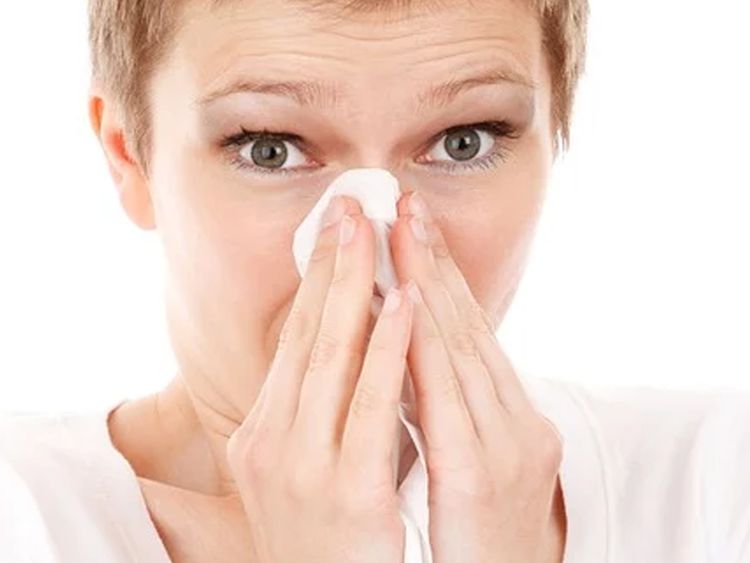There’s a simple way to fight the new Coronavirus – stay clean.
No, this does not need you to start wearing a hazmat suit, just your average cleaning products like soap and water. Viola! They work. And we have this as a confirmed fact from the World Health Organisation.
Right now we are facing a global health emergency and there is cause for concern, especially for those with compromised immune systems. But, to just put into perspective, as per a report by the Harvard Medical School: “So far this season, there have been nearly 30 million cases of flu and 17,000 deaths.”
Compare that to the global stats for Coronavirus (at the time of filing this report as per worldometers.info): Number of cases – 96,739, deaths – 3,308, recovered – 53,955.
Does this mean we should not be cautious? Of course not. As per WHO, the new Coronavirus has a 3.4 per cent mortality rate, which is enough to cause anyone to step back.
But we are not helpless, especially if new research published in the Journal of the American Medical Association (JAMA) is anything to go by.
What is the research on coronavirus transmission saying?
Researchers at Singapore’s National Centre for Infectious Diseases and DSO National Laboratories looked at the cases of three patients who were held in isolation rooms between late January and early February.
They studied the process of transmission and found that high-touch surfaces, basins, and toilet bowls were key culprits, not just coughing or sneezing. But, the virus was “killed by twice-a-day cleaning of surfaces and daily cleaning of floors with a commonly used disinfectant — suggesting that current decontamination measures are sufficient as long as people adhere to them.”
Significant environmental contamination by patients … through respiratory droplets and fecal shedding suggests the environment as a potential medium of transmission and supports the need for strict adherence to environmental and hand hygiene.
The report stated: “Significant environmental contamination by patients … through respiratory droplets and fecal shedding suggests the environment as a potential medium of transmission and supports the need for strict adherence to environmental and hand hygiene.”
So, what do we need to do?
Bathe: At least once a day, as cleanliness with the help of soap and water is a key line of defense.
Change your clothes regularly: There is no clear evidence on how long the coronavirus can survive on soft surfaces such as fabrics. But, its ability to stay viable with an active host has still not been accurately documented, it is safer to change your clothes regularly, and wash them daily with a warm rinse cycle. The coronavirus does not like heat or higher temperatures.
Wash your hands: Often, especially before you eat, touch your face, etc., or after using high-contact surfaces such as washrooms, public door handles, doors, and handrails.
In general, a virus will survive the longest on nonporous surfaces made of metal and plastics — including door knobs, counters and railings. This holds true for money too. A virus will die sooner on fabrics or tissues.
“Eyes, nose, mouth — all those mucous membranes are the portal into the body for a virus like Covid-19 or SARS,” said Mary-Louise McLaws, professor of epidemiology, health care infection and infectious diseases control at the University of New South Wales in Sydney, Australia. This is from a report published by the New York Times on their website
In fact, a 2015 medical study found that we touch our face about 23 times in an hour, and 44 per cent of that involves touching the eyes, nose or mouth or the T-zone. The only answer is hand hygiene.
In fact, a 2015 medical study found that we touch our face about 23 times in an hour, and 44 per cent of that involves touching the eyes, nose or mouth or the T-zone. The only answer is hand hygiene.
As per recommendations by the Centers for Disease Control and Prevention – Wash your hands often with soap and water for at least 20 seconds, especially after going to the bathroom; before eating; and after blowing your nose, coughing, or sneezing.
If soap and water are not readily available, use an alcohol-based hand sanitizer with at least 60 per cent alcohol. Always wash hands with soap and water if hands are visibly dirty.
Cover your face: Seriously, cover your mouth and nose when you cough or sneeze with a tissue, then throw the tissue in the trash. Do not spray everybody and every surface around. This is inconsiderate and impolite, and now dangerous behaviour.
Keep your environment clean: Clean and disinfect frequently touched objects and surfaces using a regular household cleaning spray or wipe.
Do not share drinks: The virus does spread from one person to another, most likely through droplets of saliva or mucus, which will be transferred when sharing a glass, cutlery or straws with someone. If you touch such high-danger surfaces by mistake, either clean your hands with a sanitizer or wash it with soap and water.
Washroom hygiene: If you’ve used a washroom, it becomes imperative to wash your hands. Fecal shedding is an active transmitter.
Selfies: If you love taking selfies, don’t stop. Just be sure to clean your hands if you touch any surface while posing.
Protect your pet: As the inter-species transmission of this virus has not been fully researched, keep your pets away from people with probable exposure to coronavirus – no snuggling, hugging, or kissing. They cannot defend themselves, you have to do that for them.
9 surfaces to be careful of:
1. Money – banknotes (relatively low in risk)
2. Door handles
3. Office kitchens – kettles
4. Vending machines
5. ATMs
6. Handrails of stairs, escalators, gym equipment
7. Elevator buttons
8. Public bathrooms
9. Hospitals
So, as you can see, each of these measures are well within our control. Let’s push back with cleanliness and proper awareness. To better global health!
Source: gulfnews.




